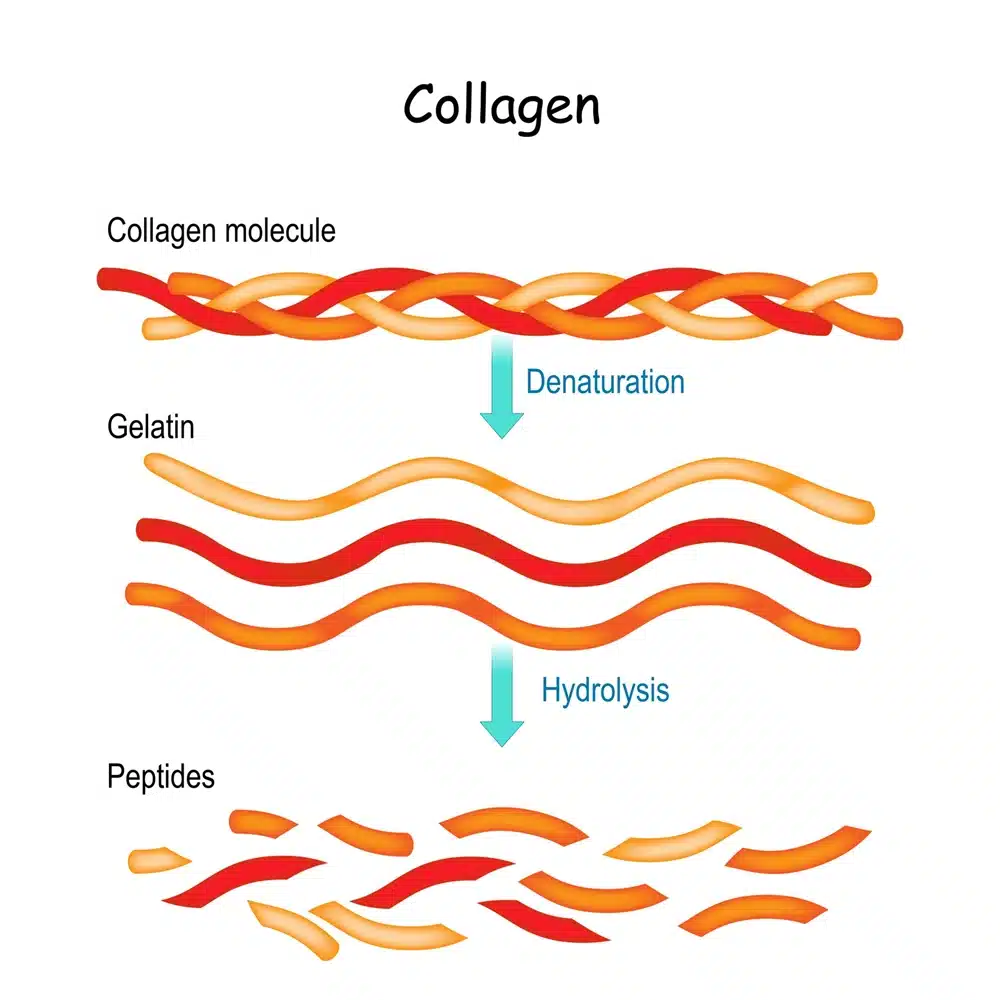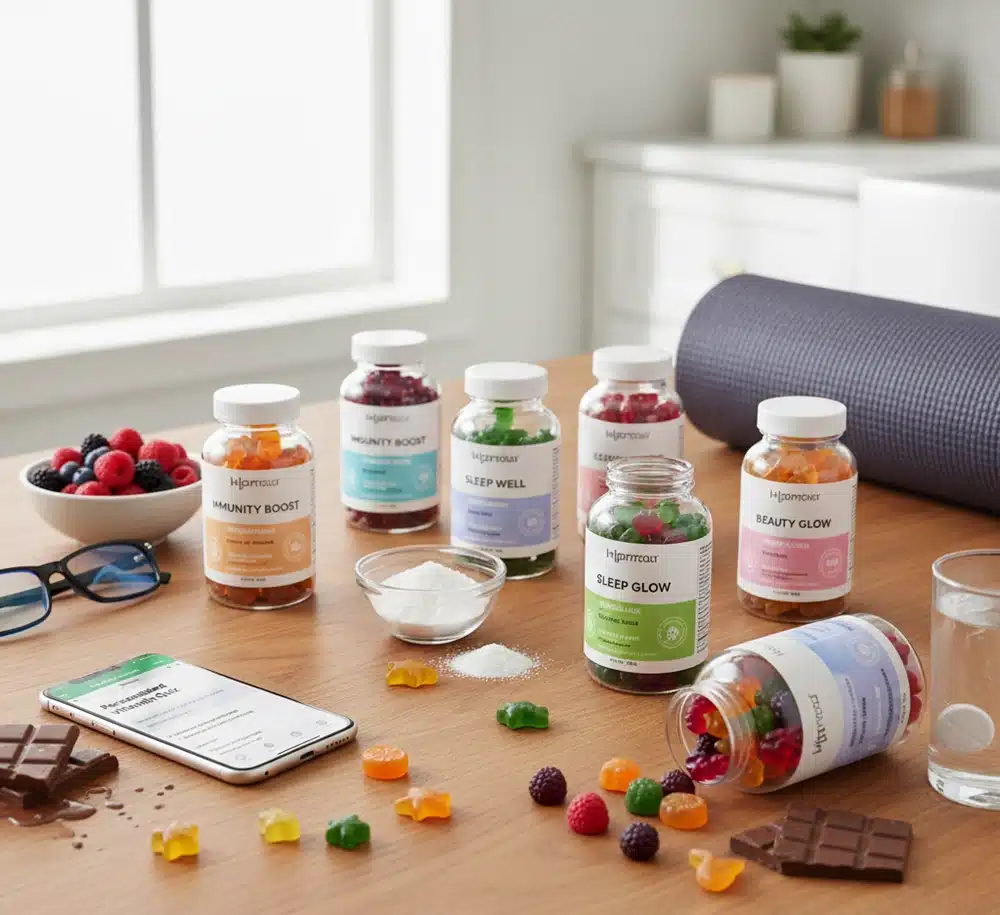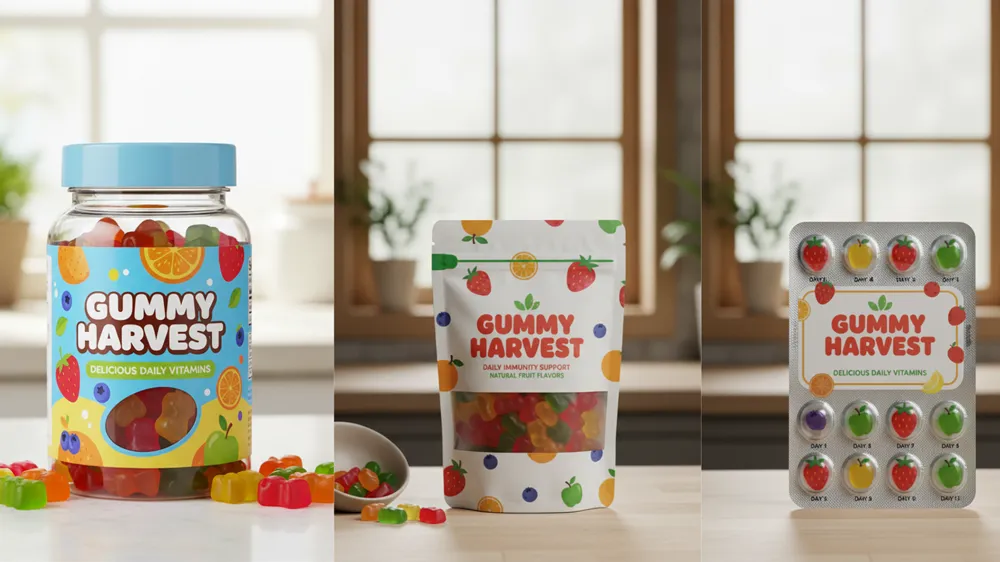
An Important Note: Before we begin, it’s essential to know that The U.S. Food and Drug Administration (FDA) does not approve supplements for safety or effectiveness. You should always talk to a healthcare professional about whether a supplement is the right fit for your individual health and to discuss any potential drug interactions or safety concerns.
It’s impossible to ignore: collagen gummies are everywhere. It’s easy to see why they’ve become so popular.
First, the core ingredient, collagen, is one of the trendiest supplements on the market. People are taking collagen peptides—the tiny, absorbable pieces of collagen—in hopes of improving skin elasticity and hydration, a benefit noted by experts at the Cleveland Clinic. This isn’t just a passing fad; it’s a massive business. The entire collagen industry is projected to expand by over 10 percent by 2030.
Second, the gummy supplement format itself has taken off. The entire gummy supplements market is exploding, with market research projecting a growth of about 9.15 percent in just five years. The appeal of any single gummy supplement is obvious: they taste like candy but come with health-promoting claims. It seems like a “hypothetical win-win.”
But is that win real?
In this article, we’re cutting through the hype to find the truth. We’ll look at the science, the dosage, and the inconvenient facts to answer one question: Do collagen supplements gummies really work?
What Does Science Say About Collagen?

Before we can judge the gummy, we have to understand the ingredient. Collagen is the most abundant protein in your body. Think of it as the “scaffolding” or “glue” that holds everything together, giving structure to your skin, bones, joints, and hair. As we age, our natural production of collagen declines, leading to common signs of aging like fine lines, wrinkles, and achy joints.
This is where supplements come in. However, you can’t just eat collagen (like steak gristle) and expect it to work. The molecule is too large for your body to absorb.
The magic ingredient in supplements is hydrolyzed collagen or collagen peptides. These are the same collagen proteins, but they’ve been broken down into tiny, bioavailable pieces that your body can absorb and use.
Scientific studies—almost all of which use high-dose powders, not gummies—have linked collagen peptide supplementation to several potential benefits:
- Improved Skin Health: Studies suggest it can improve skin elasticity, boost hydration, and reduce the appearance of fine lines.
- Joint Pain Relief: Some research shows that collagen can help reduce joint pain, particularly in athletes or those with osteoarthritis.
- Stronger Hair and Nails: While the evidence is less robust, many users report faster-growing and stronger hair and nails.
So, the science is clear: collagen peptides are a promising supplement. The real question is whether a gummy is an effective way to get them.
The “Gummy Problem”: 2 Reasons to Be Skeptical
This is where the sweet story starts to crumble. The gummy format, while delicious, presents two significant problems that directly impact its effectiveness.
Problem 1: The Dosage Dilemma
This is the most critical issue. Look at the science: the clinical studies that showed real results for skin and joints almost always used a daily dose of 10 to 20 grams of collagen peptides.
Now, pick up a bottle of collagen gummies and check the label. A typical serving (usually 2 gummies) provides just 1 to 2 grams of collagen, and sometimes even less.
Let’s do the math. To reach the minimum 10-gram dose used in successful studies, you would need to eat 10 to 20 gummies every single day. Not only is that unrealistic, but it leads us directly to the next problem.
Problem 2: The Sugar Factor
How do you make a vitamin taste like candy? You add sugar.
Most collagen gummies list sugar, glucose syrup, or corn syrup as one of their first ingredients. To consume that “effective” 10-gram dose, you wouldn’t just be eating 20 gummies—you’d also be consuming 15 to 30 grams of sugar. That’s more sugar than a can of Coke.
Here’s the ironic, non-scientific truth: a high-sugar diet can actively harm your collagen. A process called glycation occurs when sugar molecules attach to proteins (like collagen), making them rigid and weak. This process can accelerate the signs of aging.
You read that right. Your pro-collagen gummy habit might be feeding an anti-collagen habit by delivering a dose of skin-damaging sugar with a tiny, ineffective sprinkle of collagen.
How Collagen Supplements Gummies Stack Up: The 3-Way Comparison
| Feature | Collagen Gummies | Collagen Powders | Collagen Pills |
|---|---|---|---|
| Clinical Dosage | Very Low (1-2 grams) |
High / Effective (10-20 grams) |
Low / Inconvenient (6-10 capsules needed) |
| Sugar / Fillers | Often High (Sugar, syrup, colors) |
Very Low / None (Often pure peptides) |
None (Just a gelatin capsule) |
| Cost Per Gram | Very High | Very Low | Medium |
| Convenience & Taste | Excellent (Tastes like candy) |
Good (Must be mixed, can have a slight taste) |
Good (No taste, but many pills) |
| Best For... | Casual users who hate pills and powders. | Users serious about results (skin, joints). | Travel or those who want a taste-free option. |
How to Choose a Good Collagen Gummy?
Let's be realistic. Maybe you just can't stand powders and you're willing to accept the trade-offs. If you are set on buying gummies, you can at least be a smart shopper.
Here's what to check on the label before you buy:
- Dose (in Grams): Look for the highest grams (g) of collagen you can find, not milligrams (mg). Don't be fooled by 250mg—that's only 0.25 grams.
- Sugar Content: This is non-negotiable. Look for 3 grams of sugar or less per serving. Ideally, look for brands sweetened with allulose, monk fruit, or stevia.
- The Right Type: The label should say "Hydrolyzed Collagen" or "Collagen Peptides." This proves it's the bioavailable form. (Type I & III are for skin/hair; Type II is for joints).
- No "Proprietary Blends": Avoid products that hide their collagen in a "beauty blend." You want to know exactly how much collagen you are getting.
Here is a conclusion (a rewrite of your final section) that naturally incorporates the keyword "Guide to Gummy Supplements" and wraps up the article's main points.
The Final Takeaway
- If you are serious about results (improving skin elasticity, reducing joint pain): Collagen powder is the clear winner. It delivers the high, effective dose backed by science, without the sugar, and at a much better value.
- If you prioritize convenience and taste (and just want a small "top-up"): A low-sugar collagen gummy is an acceptable (but expensive) option. Just be sure to manage your expectations and treat it more like a sweet treat with a small wellness benefit, not a high-potency solution.
If you would like to learn more about the Comprehensive Guide to Gummy Supplements 2025, please Contact Gensei.
fAQs
Resource
- https://www.fda.gov/food/dietary-supplements/information-consumers-using-dietary-supplements
- https://my.clevelandclinic.org/health/articles/23089-collagen
- https://www.grandviewresearch.com/industry-analysis/collagen-market
- https://www.mordorintelligence.com/industry-reports/global-gummy-supplements-market



